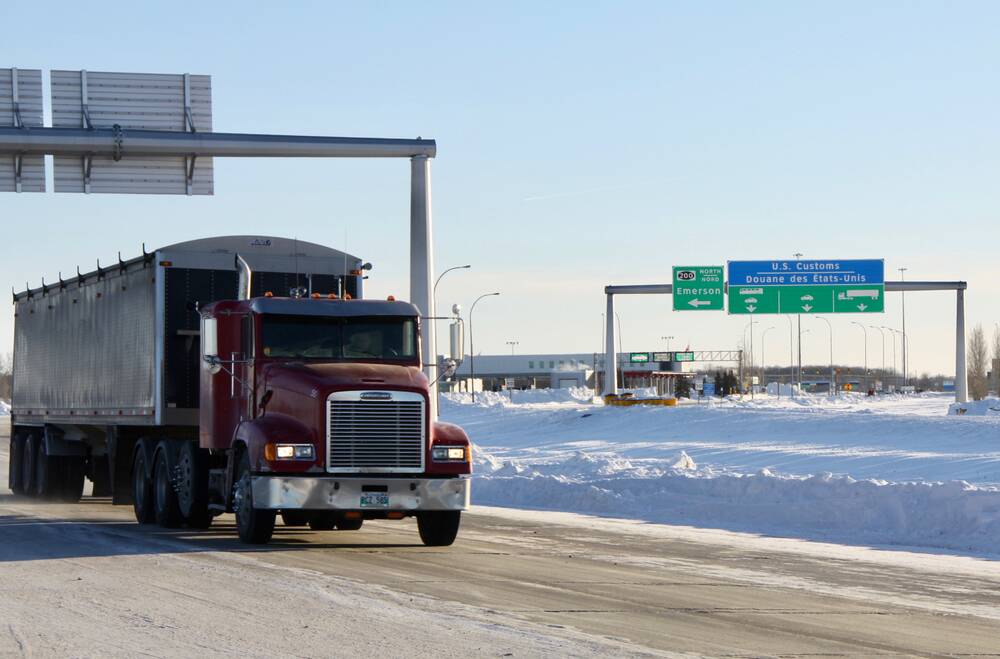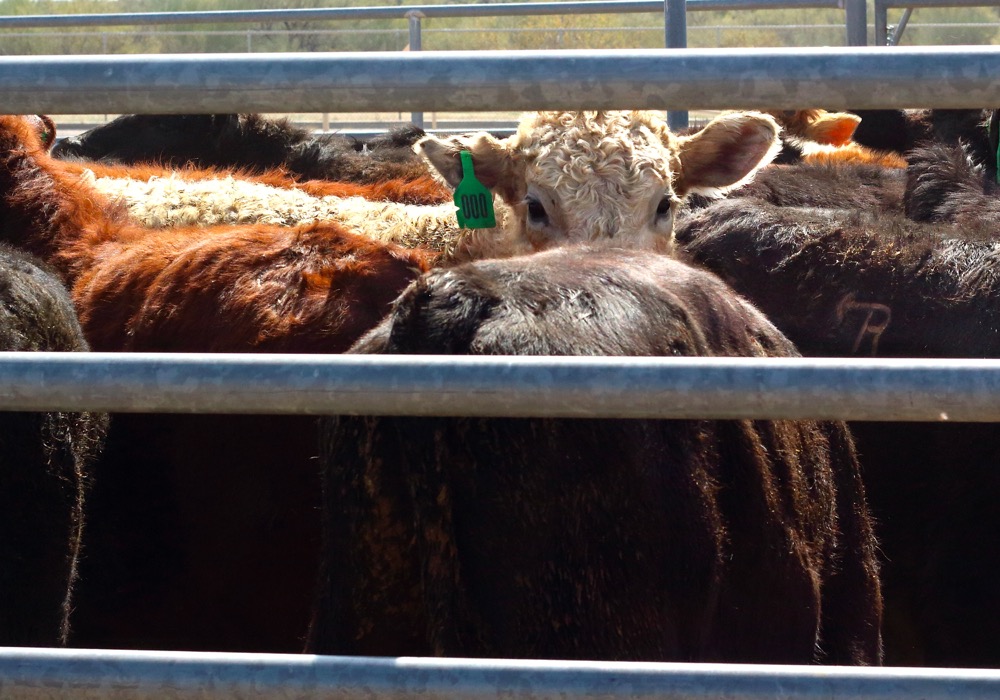Tariffs will be ‘devastating’ | Farmtario

Glacier FarmMedia — U.S. President Donald Trump announced Feb. 1 he will implement threatened 25 per cent tariffs against Canada.
Prime minister Justin Trudeau quickly announced retaliatory tariffs matching Trump’s at 25 per cent.
The U.S. tariffs were to take effect Feb. 4. Canada’s will take effect the same day on $30 billion worth of American goods and will continue up to $125 billion in three weeks.
Provincial governments are also beginning to take action, with Ontario premier Doug Ford announcing Feb. 3 via X (formerly Twitter) a ban on American companies from provincial contracts.
Read Also


Klassen: Western Canadian feeder markets set fresh high amid tariff threat
For the week ending February 1, Western Canadian feeder cattle markets traded steady to $8 per hundredweight higher compared to seven days earlier. In some cases, larger packages of quality genetics were up as much $15/cwt from the prior week.
Canadian Federation of Agriculture president Keith Currie explained the impacts U.S. tariffs as well as Ottawa’s retaliation will have on Canadian producers.
“In eastern Ontario, certainly, there’s a lot of natural gas that comes in from Pennsylvania and upstate New York, which will drive up energy costs, which potentially could drive up the cost of nitrogen,” Currie said.
“We get a lot of our crop protection products up out of the States, so that could potentially, again, drive the cost up.”
“We want to think about specific agriculture things, but we all have to eat, and so, is our cost of food products going to increase to the point where it becomes even more unaffordable?” Currie added.
“That’s the worry here.”
Many other groups across the Canadian agriculture community have expressed their anger and concern over the new measures.
“Tariffs will have devastating impacts on farmers, input providers, canola crushing activities and exports of canola seed, oil and meal,” Canola Council of Canada president Chris Davison said in a Feb. 1 news release.
In the same release, Canadian Canola Growers’ Association president Rick White said, “the damaging blow of these duties will be felt by every canola farmer, starting with the price they receive at delivery and will extend to the full range of their operations, ultimately reducing farm profitability.”
Dairy Farmers of Canada released a statement in which president David Wiens expressed deep concern “about the far-reaching impacts that the high tariffs imposed by the United States on Canadian products will have on consumers, industries and economies on both sides of the border.”
Kyle Larkin, executive director of Grain Growers of Canada. said in a news release that the U.S. measure “isn’t just a tariff on Canadian farmers — it’s a tax on every American family purchasing loaf of bread, oatmeal, canola oil and other food staples at the grocery store.”
This idea of mutual harm was echoed by Greg Northey, president of the Canadian Agri-Food Trade Alliance, who said in a Feb. 3 news release that “tariffs will drive up costs, disrupt supply chains and harm American, Canadian and Mexican consumers and producers.”
In a Fruit and Vegetable Growers of Canada news release, executive director Massimo Bergamini said Trump’s decision “exacerbates an already difficult situation,” in reference to food insecurity in Canada.
““FVGC acknowledges and supports the Government of Canada’s steadfast ‘Team Canada’ approach in addressing these trade challenges.”
Also condemning Trump’s decision was Cereals Canada.
“The implementation of significant tariffs on Canadian cereal grains and ingredients will drastically impact their availability in North America, leading to increased costs for food processors, lower returns for farmers, and higher grocery bills for American families,” said CEO Dean Dias in a Cereals Canada press release.
“Canada’s agriculture sector is key to our nation’s prosperity and the food we grow is critical to millions of North Americans,” he continued. “Even a short disruption will be damaging to our sector, and the Canadian economy as a whole.”
A recently released written policy note from Agri-Food Economic Systems warns that “North America will soon find itself in the grip of a full-scale trade war.”
Ted Bilyea, one of the paper’s co-authors, said in a news release that Canada exporting more agri-food products to the U.S. than it imports “could turn out to be a liability for Canada.”
Bilyea also noted “tariffs could result in a self-injury to the U.S.”
Some American farm groups have already expressed concern about the harmful impacts on their own operations. In a Feb. 2 press news, Zippy Duvall, president of the American Farm Bureau Federation, said U.S farmers will “bear the brunt of retaliation.”
“Over 80 per cent of the United States’ supply of a key fertilizer ingredient — potash — comes from Canada,” Duvall wrote.
“Tariffs that increase fertilizer prices threaten to deliver another blow to the finances of farm families already grappling with inflation and high supply costs.”
Currie said he has already seen some pushback against Trump’s tariffs in the U.S.
“You have Republican senators coming out on the East Coast and saying, ‘you know, ‘the economy is so integrated with Canada. It’s the partner that we trade with more than anybody else, and it’s going to impact our people more so than it’s going to impact Canadians.’ ”
He said the tide could begin to turn if state governors spoke out against the tariffs, though that outcome seems unlikely.
The pressure could soon expand beyond U.S. borders, though.
“If (Trump) does what he says he’s going to do … and prices start to skyrocket, he’s not only getting pressure internally, he’s going to get pressure from around the world, and people will desperately look to other markets,” Currie said.
“And if you switch to another market, you don’t always come back.”
Source: Farmtario.com

